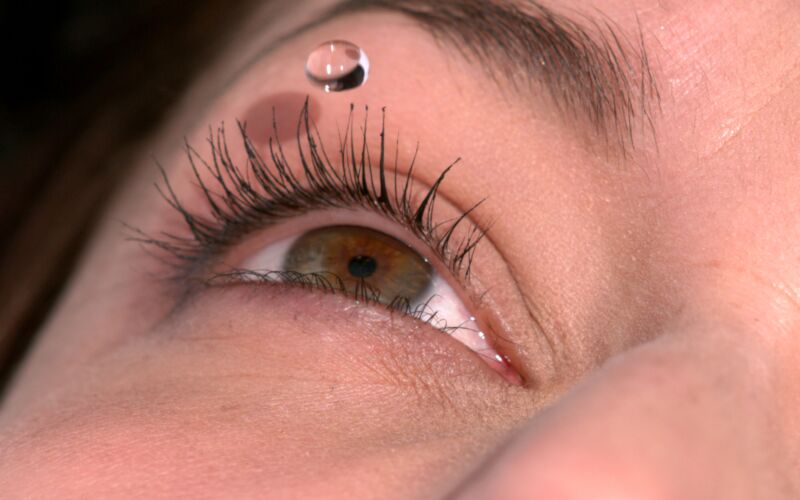Barefoot workers, bacteria found at factory that made big-brand eye drops

The Indian manufacturing facility that made generic eye drops sold under CVS, Target, Rite Aid, and Walmart brands had a slew of manufacturing violations, including allowing workers to regularly perform their roles barefoot and failing to document bacterial contamination, according to an inspection report released by the Food and Drug Administration.
Last month, the regulator warned consumers to immediately stop using over two dozen kinds of big-brand eye drops due to a risk of infection. The list has since been updated to include a few more products. In addition to the big store brands, the eye drops were also sold as Leader (Cardinal Health), Rugby (Cardinal Health), and Velocity Pharma branded products.
All of the products are made by Kilitch Healthcare India Limited in Mumbai. At the time of the FDA’s initial warning, the agency said it had found bacterial contamination in critical production areas of the Mumbai facility. As such, the agency warned of a possibility that the products, which are intended to be sterile, may not be and could pose a risk of infection.
To date, no infections have been linked to any of the eye drops. But the big retailers quickly began pulling the products from shelves upon the FDA’s warning. This week, Kilitch issued a voluntary recall of the products.
The inspection report, recently released, offers more details of the FDA’s alarming findings. Inspectors, who surveyed the facility between October 12 and 20, found 14 categories of manufacturing problems. They included problems with documentation, laboratory controls, data reporting, sanitation, testing, and monitoring.
FDA inspectors found the facility was in poor condition generally, noting cracked floors, peeling paint, water stains, and dust build-up. Most surprisingly, the inspectors observed barefoot employees working in a sterile area of the facility, where they should have been wearing shoes—plus gowns, gloves, and shoe booties. (The barefoot workers were also not wearing gowns or gloves.) A production manager puzzlingly told FDA inspectors that shoeless work is “standard practice.”
Inspectors also noticed that if workers at the facility detected bacterial contamination that registered over an “action” or “alert” level, the testing results were not recorded. Instead, the measurement was discarded and the microbiology manager would order more cleaning until the contamination testing fell below the alert level. A microbiologist at the facility said this happened two to three times a month.
The FDA report noted that over the last five years, the facility’s microbiology laboratory reported no action-level results and only four alert-level results from environmental monitoring and personnel monitoring. But, when samples were collected during the FDA’s inspection—and only between October 16 and 18—there were 39 alert- and action-level detections. Of those, 33 were action-level results.
The revelations and recall are part of a string of disturbing events related to eye drops. At the start of the year, an outbreak of extremely drug-resistant bacterial infections linked to EzriCare Artificial Tears came to light. At the latest count, 81 people in 18 states were affected, with four deaths, four people needing eyeballs surgically removed, and 14 others losing vision. In March, the FDA also raised non-sterility concerns about eye drop products from Pharmedica and Apotex.
https://arstechnica.com/?p=1984986